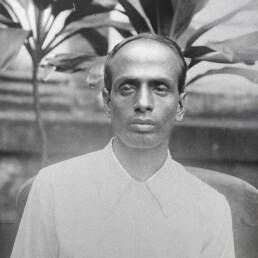This dilapidated building on Nimtala street in Kolkata was once a college and subsequently, parts of it served as a torture chamber headed by the Empire’s most notorious Police officers.
In the summer of 1924, a businessman was shot dead on the streets of Calcutta; he was no revolutionary, instead, his face resembled a police officer, who the investigation revealed was the real target of the assassination, Charles Tegart.
It’s not every day that you see an Irish loyal to the cause of the British Empire. Tegart was born in County Derry, after spending a year in Trinity College he sat for the Indian Police exams and passed with flying colors. In 1906 he was made Deputy Commissioner of Police in Calcutta.
After the partition of the province in 1905, Bengal was simmering, the Bengali intelligentsia who were once British Loyalists were now baying for British Blood. From 1906 well into the 1930s many acts of rebellion or so-called acts of terrorism were carried out on Bengal soil.
To counter the increasing revolutionary activities an intelligence branch was set up by Calcutta Police and Tegart was appointed to it. Tegart was very good at his work; he helped gather intelligence which led to large-scale detentions and arrests.
Soon Tegart became a hero of the European Community and for the rebellious Bengali a target. In 1920 an old college building on Nimtala Ghat street, Duff college, was turned into a police station by Tegart and his associates. It soon became synonymous with torture.
The original building which served as the Duff college before the police takeover was once a garden house of a wealthy Bengali Babu. In March of 1844, the Free Church Institution opened up a school headed by Scottish missionary Alexander Duff.
The institution became famous as Duff college and would in later years add another building to the campus accommodating up to 800 students. One of its most illustrious students was Surendranath Banerjee, one of India’s early nationalist leaders.
When Tegart took over Jorabagan Thana it immediately became a target, on the evening of 26th August 1930 Bombs were hurled at the Station, and though no police officers were hurt, a couple of innocent bystanders were critically injured.
The Bengal revolutionaries were often inspired by their counterparts in Ireland fighting a similar war. Some would imagine that given Tegart’s nationality he could have been sympathetic toward the revolutionary cause, but it was not the case.
Eye Witnesses often claimed that men were dragged into the Thana and some of them never came out. Though it’s difficult to access what actually might have been going on inside the Thana, Torture claims against Tegart were even labeled by his own countrymen.
Annie Bessant, an Irishwoman who became an Indian nationalist leader later in her life accused Tegart of high-handedness, of slapping and punching suspects, and even threatening to kill them by showing his revolver.
Tegart remained a considerable thorn for the revolutionaries till his retirement in 1931. Joarabagan’s notoriety however was to continue. In the 1970s leftist Leader, Charu Mazumder had created an atmosphere of unrest, Naxals were everywhere.
Joarabagan Thana continued as a torture chamber used for Naxals. In 1972 the Jorabagan Police received an anonymous tip about some bombs being set up by the Naxals to explode in a Puja procession.
They got there in time and were able to stop the explosion. But a couple of days later the confiscated bombs exploded in the Police Compound, killing several personnel and injuring many. The compound still served the police till it was declared unsafe in the 1980s.
The old building though considered a heritage building now continues to be neglected, but even today its mysteries and legends still fascinate curious on-lookers.
Sources: Michael Silvestri, An Irishman is specially suited to be a policeman, 18th–19th – Century History, 20th-century / Contemporary History, Features, Issue 4 (Winter 2000), Volume 8; Terrorism In India (1917-1936), Digital Library of India Item 2015.22752 (1937), https://archive.org/details/in.ernet.dli.2015.22752/page/n53/mode/2up; Duff, Alexander (1806-1878), Scottish missionary in India and missiologist, https://www.bu.edu/missiology/missionary-biography/c-d/duff-alexander-1806-1878/;
Image Attributes: Jorabagan Police Station (formerly Duff College), https://en.wikipedia.org/wiki/Jorabagan;




